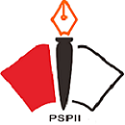Strengthening Islamic Value of Rahmatan Lil Aalamin for Lampung Society by the Indonesian Ulema Council (MUI)
Abstract
Keywords
Full Text:
PDFReferences
Amirudin. (2024). Menangkal Radikalisme Salah Satu Bentuk Cinta Tanah Air.
Anwar, A. S., Leo, K., Ruswandi, U., & Erihadiana, M. (2022). Internalisasi Nilai-Nilai Moderasi Beragama Abad 21 melalui Media Sosial. JIIP - Jurnal Ilmiah Ilmu Pendidikan, 5(8), 3044–3052. https://doi.org/10.54371/jiip.v5i8.795
Ari Wibowo. (2019). Kampanye Moderasi Beragama Di Facebook : Bentuk Dan Strategi Pesan. Edugama : Jurnal Kependidikan Dan Sosial Keagamaan, 5(1), 85–103. https://www.jurnal.lp2msasbabel.ac.id/index.php/edu/article/view/971/299
Arif, M. K. (2021). Islam Rahmatan Lil Aalamin From Social and Cultural Perspective. Al-Risalah, 12(2), 169–186. https://doi.org/10.34005/alrisalah.v12i2.1376
Asy’ari, H. (2011). Risalah Ahlu Sunnah Wal Jamaah. PBNU.
Bogdan, R. C., & Biklen, S. K. (2015). Qualitative research for education: An introduction to theory and methods. Allyn and Bacon, Inc.
Huda, S., Muhammad, D. H., & Subandi, A. (2022). Konsep Rahmatan Lil Aalamin Dalam Pendidikan Islam. Jurnal Pendidikan Dan Konseling, 4(2), 1–7.
Kesuma, A. S., Yuda, G., & Kesuma, M. E. K. (2023). The Nenemo Philosophy of the West Tulang Bawang Community as a Media for Conflict Resolution and Local Politics. Res Militaris, 13(1), 204–219.
Muhtarom, A., Fuad, S., & Latif, T. (2020). Moderasi Beragama: Konsep, Nilai, dan Strategi Pengembangannya di Pesantren. Yayasan Talibuana Nusantara.
Mukhlis, M. (2023). Lingkungan Pendidikan Islam dan Problematika: (Kajian Terkait Komponen Utama Lingkungan Pendidikan Islam). AL GHAZALI: Jurnal Pendidikan Dan Pemikiran Islam, 3(2), 76–92. https://doi.org/10.69900/ag.v3i2.176
NU Online. (2008). PBNU: Dialog Antar-Umat Beragama untuk Ciptakan Kebersamaan.
Pranoto, H., & Wibowo, A. (2018). Identifikasi Nilai Kearifan Lokal (Local Wisdom) Piil Pesenggiri Dan Perannya Dalam Dalam Pelayanan Konseling Lintas Budaya. JBKI (Jurnal Bimbingan Konseling Indonesia), 3(2), 36. https://doi.org/10.26737/jbki.v3i2.714
Rahayu, Rinti, L., & Lesmana, P. S. W. (2020). Potensi Peran Perempuan dalam mewujudkan moderasi beragama di Indonesia. Jurnal Pustaka, 20(1), 31–37.
Ridho, A. (2020). Toleransi Keagamaan Masyarakat Di Desa Guwa Lor Kecamatan Kaliwedi Kabupaten Cirebon. Harmoni, 19(2), 368–390. https://doi.org/10.32488/harmoni.v19i2.404
Rohimat, A. M. (2018). Metodologi Studi Islam: Memahami Islam Rahmatan Lil’alamin. FEBI IAIN Surakarta.
Shihab, M. Q., & Sahabuddin. (2007). Ensiklopedia Al-Qur’an: Kajian Kosakata. Lentera Hati.
Sirajudin. (2020). Literasi Moderasi Beragama Di Indonesia. Zigie Utama.
Sobby, A., & Yudha, G. (2023). The Actualization of Democracy Values Based on Local Wisdom. KnE Social Sciences, 2023, 57–69. https://doi.org/10.18502/kss.v8i16.14032
Sofiana, N. E. (2023). Relasi Ijtihad NU, Muhammadiyah, dan MUI. Al-Syakhsiyyah: Journal of Law & Family Studies, 4(2), 141. https://doi.org/10.21154/syakhsiyyah.v4i2.4759
Solikhun, S. (2021). Relevansi Konsepsi Rahmatan Lil Aalamin dengan Keragaman Umat Beragama. Hanifiya: Jurnal Studi Agama-Agama, 4(1), 42–67. https://doi.org/10.15575/hanifiya.v4i1.11487
Sugiyono. (2018). Metode Penelitian : Kuantitatif, Kualitatif, dan R&D. Alfabeta.
Turmudzi, E. (2005). Islam Dan Radikalisme Di Indonesia. LIPI Press.
Widasari, R. W. (2016). Universalisme Islam sebagai Perwujudan Agama Rahmatan Lil Aalamin (Analisis terhadap Konsep Universalisme Islam Nurcholish Madjid). Jurnal: Fakultas Agama Islam ; Ushuluddin, 1–14.
Widodo, P., & Karnawati, K. (2019). Moderasi Agama dan Pemahaman Radikalisme di Indonesia. PASCA : Jurnal Teologi Dan Pendidikan Agama Kristen, 15(2), 9–14. https://doi.org/10.46494/psc.v15i2.61
Widoyo, A. F., Abduh, M., Amrie, M. A., & Islamy, A. (2023). Moderation of religion in the Fatwa of Majelis Ulama Indonesia about the Ethics of da’wah in the Digital Age. Jurnal Ilmu Dakwah, 43(1), 107–119. https://journal.walisongo.ac.id/index.php/dakwah/article/view/16053
Yasin, D. M., Hawari, N., & Yudha, G. (2024). Kedudukan dan Relevansi Pemikiran Politik Jamaluddin Al- Afghani Terhadap Pemikiran Moderat di Indonesia. Politea: Jurnal Pemikiran Politik Islam, 7(1), 163–188.
Yudha, G. (2021). Pengaruh Metodologi Teologi Al-Asy’ari Dan Implementasinya Bagi Perkembangan Pemikiran Akidah Moderat di Indonesia. Jurnal Tapis: Jurnal Teropong Aspirasi Politik Islam, 17(2), 99–115. https://doi.org/10.24042/tps.v17i2.12820
Yudha, G., Arini, I., . A. A., Hermanto, A., & Anggitha, R. (2024). The Position and Relevance of Abu Al-A’la Maududi’s Political Thoughts for Leadership Ethics in the Era Society 5.0. KnE Social Sciences, 2024, 425–432. https://doi.org/10.18502/kss.v9i2.15000
DOI: http://dx.doi.org/10.24042/atjpi.v15i2.24948
Refbacks
- There are currently no refbacks.
Copyright (c) 2024 Al-Tadzkiyyah: Jurnal Pendidikan Islam

This work is licensed under a Creative Commons Attribution 4.0 International License.

Al-Tadzkiyyah: Jurnal Pendidikan Islam is licensed under a Creative Commons Attribution 4.0 International License. Copyright © UIN Raden Intan Lampung. All rights reserved.








